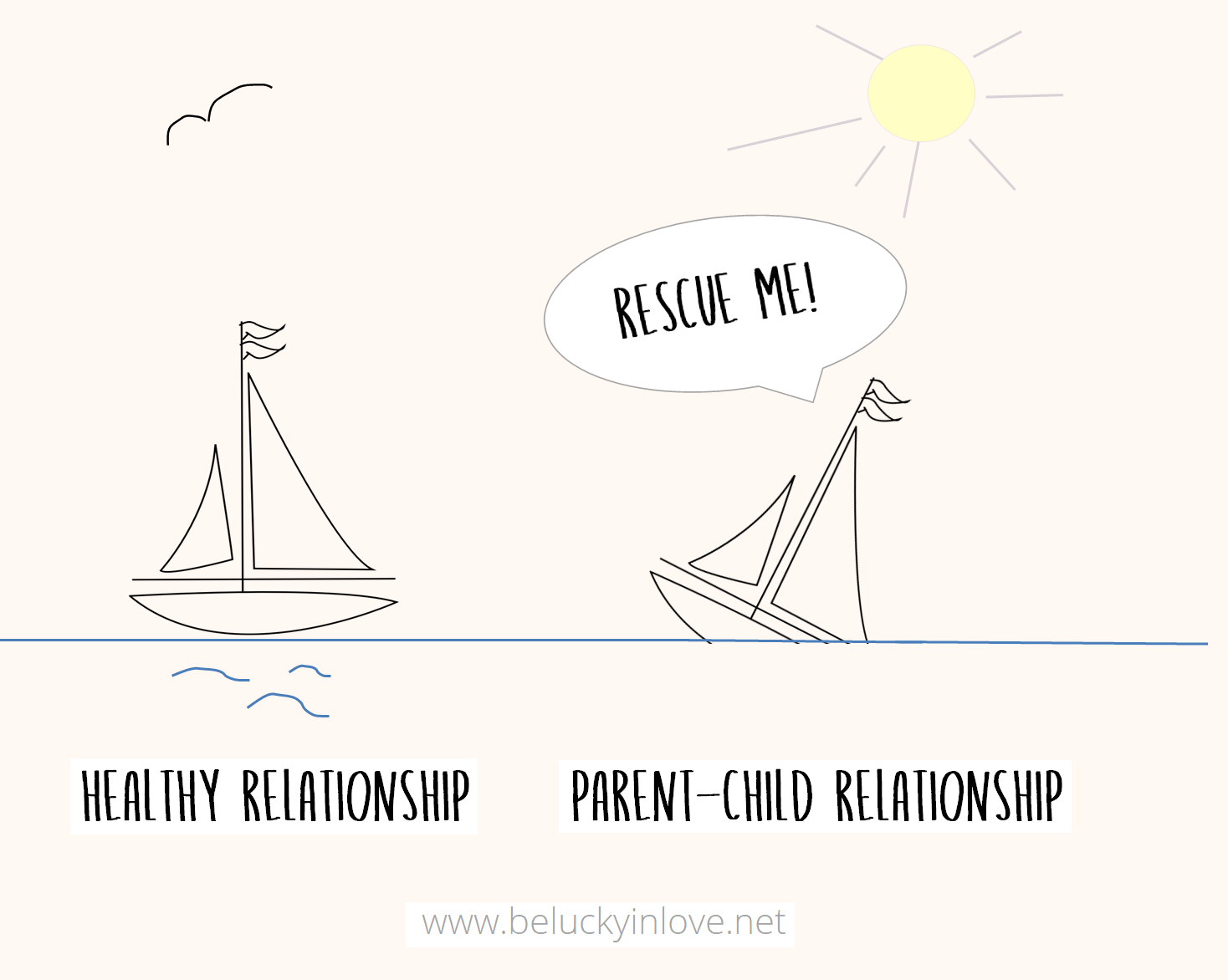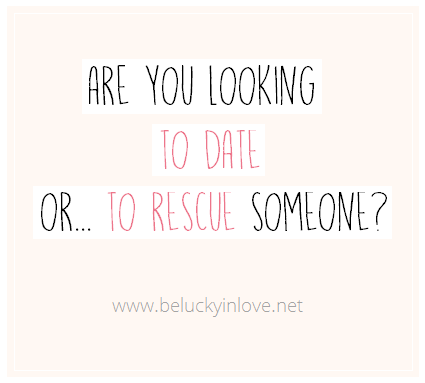Parent-child relationships
 What is a parent-child relationship? It is an unhealthy and unbalanced relationship where one party acts like a parent and the other assumes the role of a child.
What is a parent-child relationship? It is an unhealthy and unbalanced relationship where one party acts like a parent and the other assumes the role of a child.
And the scariest thing is?
All of it happens on an unconscious level which means that you could be in a parent-child relationship too without realizing it.
I personally had a chance to observe the long-term dynamics of parent-child relationships, and let me tell you this: unless someone hits their head with hard core facts, they will never know what is going on.
They will never know, but what they will sense, however, is that the relationship does not feel normal. They will sense that something is off, but won’t be able to put a finger on it. It is when you have a conversation with them laying out all the details, patterns, and dynamics that they suddenly scream "Omg! I did not realize this, but everything finally makes sense!”
Here are examples of what partners-parents in relationships do. See if any of this looks familiar.
~ they prefer to make decisions about everything. Why? Because they think they are ‘more experienced’ and ‘know better’
~ they take charge without asking the other party’s opinion
~ they rush to the rescue anytime their partner-child needs them
~ they feel responsible for the well-being of their partner-child
~ they are in a constant ‘give-give-give’ mode
~ they get upset if their ‘child’ does not go along or disobeys
~ they do not believe that their ‘child’ can function fully without them.
And here are examples of typical behavior of a partner-child
~ they heavily rely on their partner-parent (emotionally and circumstantially)
~ they ask permission
~ they know their place in the relationship and what is ‘allowed’ and ‘not allowed’
~ they surrender to whatever their ‘parent’ bestows upon them.
~ they trust their ‘parent’ or feel mad if he is too controlling
Examples of such relationships: a dominating male provider (parent) and a much younger, slightly infantile and helpless female (child); a woman in charge of an entire household (parent) and a passive, feminine beta-male (child).
Those who unconsciously assume the role of a parent see their partner-child as someone who needs their help and should be rescued on a regular basis. As a result of this dynamic their partner-child becomes an ongoing ‘project in progress’ that requires constant attention and ‘maintenance’.
Every time a partner-child fails or does something stupid or disappointing his ‘parent’ assumes full responsibility for what happened. He takes the failure personally and blames himself for not being good enough.
How can he not? It is his ‘project’ after all. He invests in it with all of his energy and heart. As I have said before – he gives, provides, explains, and protects. He does it all because that’s what he thinks he must do.
And his partner-child? He is probably a bit infantile, passive, and unmotivated. He is aware that he cannot fully function without his ‘parent’. He is emotionally dependent and reaches out to his secure shelter – the ‘parent’ - for support frequently.
Look at this image. See those two boats? One boat represents a healthy, balanced relationship and the other - the sinking one - an unbalanced parent-child relationship. What boat would you rather jump on? Which one ‘feels closer’ to you?

Driven by the need ‘to rescue’ a parent will take the opportunity to make things right and will jump on the sinking boat. He will switch into his parenting mode and do all he can to save the boat. ‘Gee, if not for me that poor thing would have been in trouble’ – he reasons.
This is true, of course, but at what cost to the parent?
Down the road he may discover that the boat has multiple issues and in order for it to stay afloat a constant NON-STOP ‘maintenance’ and attention would be required.
Would this discovery repel an emotionally healthy and balanced partner? Yes, it would.
It would repel a healthy partner, but fire up a parent one. Parents strive on this. That’s their way of being in a relationship. They commit to their helpless child and tend to it on a regular basis. They have this acute sense of responsibility and therefore no matter how unhappy, they cannot quit the relationship. They cannot let that boat sink!!
It is a crappy relationship to be in which is extremely difficult to get out from. Quitting it would be like saying ‘Hey, I am leaving you forever. I know you will die without me, but I do not care’. To un-parent a parent’s mind and to actually ‘abandon’ his partner child one has to get help from a licensed professional. An entire mindset would have to be changed.

If you were sucked into such a relationship, would it feel right or wrong? Would having someone to rescue or being rescued all the time feel normal to you? And, since you both are on the opposite sides of a spectrum – would you feel lonely?
I know you would. There is no balance in a give and take relationship. A giving and caring parent would eventually be perceived (by the child) as a controlling, always in charge control freak.
Long term resentment and self-doubts would set-in in a child’s mind – “He does not see me as an equal to share his feelings with me”, “I am so dependent on my partner and incapable of functioning on my own, I must be stupid”, “He does so much for me. It makes me question my own abilities. I feel bad about myself”, “I’m not successful and never will be”.
Both - parent and child – never appreciate each other fully. They both feel lonely, unhappy, resentful, annoyed, and trapped.
This is not a relationship! Whether you are the parent or the child, I suggest you get professional help. Stop being killed by guilt by not coming to the rescue of sinking boats. Start FEELING NORMAL by avoiding them!
YOU MAY ALSO LIKE: Articles - Are you his mommy? and Giving to an Un-interested man will NOT make him interested or if you really need to talk to someone - (this is my personal recommendation) - Affordable Online Counseling and Therapy with a Licensed Professional. You will not be disappointed!
